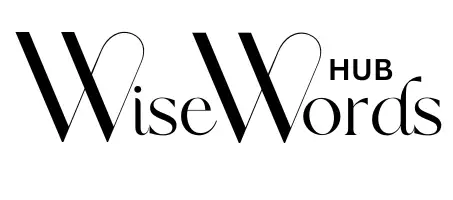Trolls and Terrorists: The Battlefront of Content Moderation

In the age of digital communication and social media, the battle against harmful content has escalated into a formidable challenge. Content moderation, once a behind-the-scenes task, has now emerged as a critical frontline defense against the proliferation of trolls and terrorists online. Delve into the complex landscape of content moderation, exploring the intricate dance between freedom of expression and the imperative to safeguard against the dissemination of harmful content.
Understanding Content Moderation
Content moderation encompasses a range of practices aimed at monitoring, filtering, and regulating user-generated content across digital platforms. From social media giants to niche forums, the task has become increasingly daunting as the volume and diversity of online content moderation required to check non-stop growing content. Moderators, often operating under immense pressure and scrutiny, grapple with a myriad of challenges, including hate speech, misinformation, graphic violence, and terrorist propaganda.
Trolls: Agents of Discord
At the heart of the content moderation conundrum lie trolls – individuals who thrive on disruption and discord. Trolling, once confined to obscure corners of the internet, has now permeated mainstream platforms, poisoning online discourse with vitriol and hostility. Trolls deploy various tactics, from targeted harassment to spreading disinformation, with the aim of sowing chaos and amplifying their own digital presence. Despite efforts to curb their influence, trolls adapt and evolve, exploiting gaps in content moderation systems to evade detection and continue their disruptive activities.
The Rise of Online Terrorism
While trolls pose a significant challenge to content moderation, the specter of online terrorism looms even larger. Extremist groups and individuals utilize digital platforms to recruit, radicalize, and coordinate their activities with unprecedented efficiency. From the dissemination of propaganda videos to the coordination of real-world attacks, the internet has become a fertile breeding ground for terrorist ideologies. Content moderation teams face the daunting task of identifying and removing extremist content while balancing the need to uphold principles of free speech.
Navigating the Ethical Quandary
The battlefront of content moderation is fraught with ethical dilemmas and philosophical debates. On one hand, there is a compelling argument for the preservation of free speech and the open exchange of ideas – principles fundamental to democratic societies. On the other hand, the unchecked proliferation of harmful content poses tangible threats to individual well-being and societal stability. Striking the right balance between these competing imperatives requires careful deliberation and a nuanced understanding of the complex dynamics at play.
Technological Solutions and Limitations
In the quest to combat trolls and terrorists, technology has emerged as both a weapon and a shield. Automated content moderation systems leverage machine learning algorithms to identify and flag potentially harmful content at scale. However, these systems are far from infallible, often struggling to discern context and intent accurately. Moreover, the cat-and-mouse game between content moderators and malicious actors means that technological solutions must continually evolve to keep pace with emerging threats.
The Human Element
Amidst the clamor for technological innovation, it is essential not to overlook the indispensable role of human moderators. Human judgment, empathy, and contextual understanding are irreplaceable assets in the fight against harmful content. Content moderation teams, composed of diverse individuals from varying backgrounds, bring a human touch to the often-mechanical process of content moderation. However, the mental and emotional toll of constantly being exposed to disturbing content cannot be overstated, highlighting the need for robust support systems for content moderators.
Collaboration and Collective Responsibility
Addressing the challenges of content moderation requires a collaborative effort involving platform operators, policymakers, civil society organizations, and users themselves. Platform operators must invest in robust content moderation infrastructure while remaining transparent about their practices and policies. Policymakers play a crucial role in crafting regulatory frameworks that strike a balance between freedom of expression and the protection of public safety. Civil society organizations and users can contribute by advocating for responsible online behavior and holding platforms accountable for their actions.
The Imperative for Transparency and Accountability
Central to effective content moderation is the principle of transparency and accountability. Platforms must be transparent about their content moderation policies, enforcement actions, and the rationale behind their decisions. Users deserve clarity regarding what constitutes acceptable behavior on digital platforms and the consequences of violating community guidelines. Moreover, platforms must be held accountable for their actions, with mechanisms in place to address grievances and rectify errors.
The Psychological Toll on Content Moderators
Content moderation is not merely a technical task; it exacts a profound psychological toll on those tasked with it. Constant exposure to graphic violence, hate speech, and extremist ideologies can lead to secondary trauma, burnout, and compassion fatigue among content moderators. Despite being shielded from the physical dangers faced by frontline workers, content moderators are often confronted with the emotional weight of bearing witness to humanity’s darkest impulses. Recognizing and addressing the psychological well-being of content moderators is paramount to sustaining a resilient and effective content moderation ecosystem.
Conclusion
The battlefront of content moderation is a complex and ever-evolving landscape, shaped by the interplay of technological advancements, societal norms, and ethical considerations. Trolls and terrorists continue to exploit the vulnerabilities of digital platforms, testing the limits of content moderation systems. Yet, amidst the challenges lie opportunities for innovation, collaboration, and collective action. By harnessing the power of technology, fostering a culture of responsible online behavior, and upholding principles of transparency and accountability, we can strive towards a safer and more inclusive digital ecosystem.
Content moderation remains at the forefront of this endeavor, serving as a bulwark against the tide of harmful content that threatens to undermine the fabric of our online communities. As we navigate the complexities of the digital age, let us not lose sight of the values that underpin our collective aspirations for a better, more connected world.






